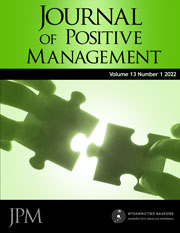The Amplification of the Bullwhip Effect in the Electronics Industry under the Influence of Panic Buying
DOI:
https://doi.org/10.12775/JPM.2022.005Abstract
Purpose: The primary purpose of this article is to show the causes and consequences of supply shortages in semiconductors for the automotive and electronics industries in 2021. The subsidiary objectives describe the behaviour of company managers that contributed to this and make proposals for strengthening the resilience of supply chains to demand impulses through their digitization and transparency of information and material flows. The stated objectives are due to the research gap in the impact of panic buying on the bullwhip effect in the supply chains.
Method: The study was based on secondary and primary sources. An analysis of secondary data in the form of reports of Polish listed companies producing electronic devices for the years 2019 and 2021 was carried out in terms of inventory turnover. The year 2019 is treated as a base year, i.e., before the Covid-19 pandemic. In contrast, 2021 presents a period when electronic device manufacturers were already experiencing significant delays in semiconductor deliveries. For primary sources, one semiconductor manufacturer and three electronic device manufacturers were interviewed.
Findings: The increase in demand for electronic components, extended delivery times and reduced availability has caused electronic device manufacturers to increase their purchases and inventories for fear of production stoppages, further screwing up the demand spiral and component shortages. Decisions to increase inventories were to some extent based on the practice of panic buying and demonstrated a lack of transparency in supply chains.
Implications: The author proposes implementing digitalization and transparency in the supply network in place of the practice based on panic buying, which would significantly reduce production downtime for car makers and electronic device manufacturers, as well as the negative financial consequences related to production stoppages and scrapping of obsolete inventory.
Keywords: bullwhip effect, panic buying, semiconductor shortage, supply chain disruptions, Covid-19
Paper type: Research paper
Downloads
Published
How to Cite
Issue
Section
License
Copyright (c) 2023 Tomasz Urbańczyk

This work is licensed under a Creative Commons Attribution-NoDerivatives 4.0 International License.
Copyright
Articles submitted to the journal should not have been published before in their current or substantially similar form, or be under consideration for publication with another journal. Authors submitting articles for publication warrant that the work is not an infringement of any existing copyright and will indemnify the publisher against any breach of such warranty. For ease of dissemination and to ensure proper policing of use, papers and contributions become the legal copyright of the publisher unless otherwise agreed.
Plagiarism and ghostwriting
In response to the issue of plagiarism and ghostwriting the editors of the Journal of Positive Management has introduced the following rules to counteract these phenomena:
1. Contributors should be aware of their responsibility for a content of manuscripts.
2. Collective authors are obliged to reveal the contribution and an affiliation of each author (i.e. who is an author of specified part of a paper).
3. Any act of dishonesty will be denounced, the editors will inform appropriate institutions about the situation and give evidence of all cases of misconduct and unethical behaviour.
4. The editors may ask contributors for financial disclosure (i.e. contribution of specified institutions).
Stats
Number of views and downloads: 828
Number of citations: 0



